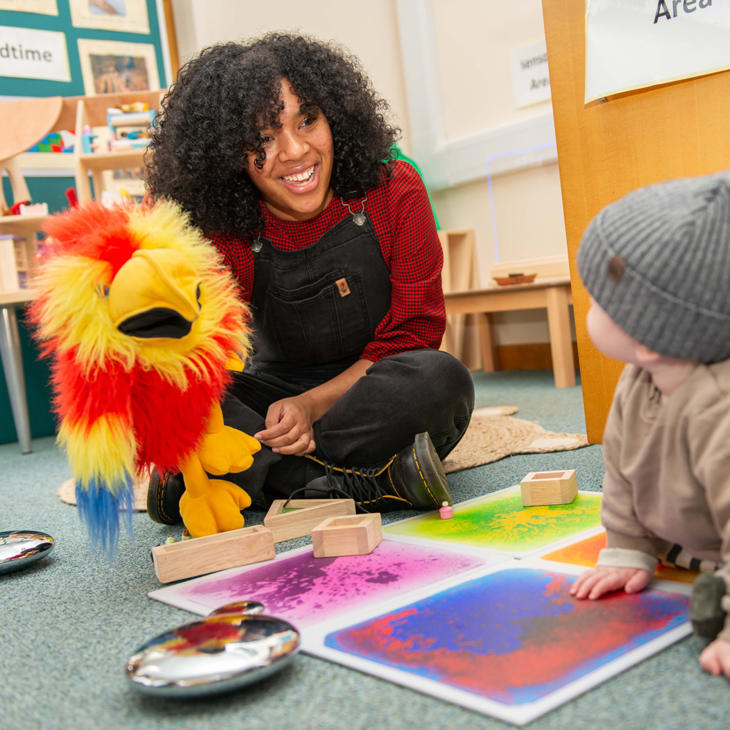Understanding the Unique Needs of Young Children
Early childhood is a period of explosive brain development, far exceeding any other stage of life. This means that a “one-size-fits-all” approach simply won’t work. Mastering early childhood education requires a deep understanding of child development milestones, recognizing that each child progresses at their own pace. It’s crucial to identify individual learning styles, strengths, and needs, tailoring instruction accordingly. This might involve incorporating diverse teaching methods, catering to different learning preferences (visual, auditory, kinesthetic), and providing ample opportunities for exploration and play.
The Power of Play-Based Learning
Forget rote memorization and rigid schedules. Play is the work of young children, and it’s the cornerstone of effective early childhood education. Play-based learning encourages creativity, problem-solving, social-emotional development, and language acquisition in a natural and engaging way. Through imaginative play, children explore their world, develop empathy, and build crucial communication skills. Providing a rich environment with diverse materials – blocks, art supplies, dramatic play props – allows children to lead their learning, experimenting and discovering at their own pace. The role of the educator becomes one of facilitator, guiding and supporting their explorations.
Cultivating Social-Emotional Intelligence
Academic skills are important, but social-emotional intelligence is equally vital for a child’s future success. Early childhood educators need to prioritize building a strong foundation in self-regulation, empathy, and social skills. This involves creating a classroom environment where children feel safe, respected, and valued. Teaching conflict resolution, emotional expression, and cooperation are key. Regular circle time discussions about feelings and social situations can help children develop emotional literacy. Celebrating diversity and encouraging positive interactions fosters a sense of belonging and inclusion.
The Importance of Parent and Family Involvement
Early childhood education is not solely the responsibility of the educator; it’s a partnership between the educator, the child, and the family. Effective communication and collaboration with parents are essential for maximizing a child’s learning potential. Regular updates on a child’s progress, sharing information about classroom activities, and providing resources to support learning at home can significantly enhance a child’s overall development. Involving parents in classroom events and activities strengthens the community and fosters a supportive learning environment for all.
Integrating Technology Responsibly
Technology can be a powerful tool in early childhood education, but it’s crucial to use it responsibly and purposefully. It’s important to remember that technology should complement, not replace, hands-on experiences and social interaction. Educational apps and interactive programs can be valuable resources, but they should be carefully selected to ensure age-appropriateness and alignment with learning objectives. Educators must be mindful of screen time limits and prioritize opportunities for unstructured play and exploration.
Creating a Supportive and Inclusive Learning Environment
A positive and inclusive learning environment is paramount for every child’s success. This means creating a space where all children feel welcome, respected, and valued, regardless of their background, abilities, or learning styles. Early childhood educators must actively work to build a diverse and equitable classroom where differences are celebrated and all children feel a sense of belonging. This includes being mindful of potential biases, promoting positive interactions between children, and adapting teaching methods to meet the diverse needs of all learners.
Continuous Professional Development
Mastering early childhood education is a continuous journey of learning and growth. Educators must remain committed to ongoing professional development to stay current with best practices and research in the field. Participating in workshops, conferences, and professional learning communities provides opportunities to expand knowledge, share experiences, and refine teaching strategies. Staying up-to-date with the latest research on child development and effective teaching methods ensures that educators are equipped to provide high-quality care and education to young children.
Assessment and Observation: Guiding the Learning Journey
Regular assessment and observation are crucial for understanding each child’s individual progress and tailoring instruction accordingly. This doesn’t mean formal testing; instead, it involves ongoing observation of children’s play, interactions, and learning behaviors. Using anecdotal records, checklists, and portfolios to document children’s progress allows educators to track their development, identify areas of strength and need, and adjust teaching strategies to best support their learning. This approach provides valuable insight into individual learning styles and preferences, helping educators create more targeted and effective learning experiences. Read more about masters in early childhood education.


![[Show Name] Gripping From Beginning to End [Show Name] Gripping From Beginning to End](https://images.unsplash.com/photo-1596405367208-63505402f113?fm=jpg&q=60&w=3000&ixlib=rb-4.1.0&ixid=M3wxMjA3fDB8MHxzZWFyY2h8MTh8fGhpZ2glMjBwb3RlbnRpYWwlMjB0ZWxldmlzaW9uJTIwc2hvd3xlbnwwfDB8MHx8fDI%3D)

![Best Family Law Attorney in [Your City/Region] Best Family Law Attorney in [Your City/Region]](https://images.unsplash.com/photo-1731955418581-5ba6827ca5ff?fm=jpg&q=60&w=3000&ixlib=rb-4.1.0&ixid=M3wxMjA3fDB8MHxzZWFyY2h8MTN8fGJlc3QlMjBmYW1pbHklMjBsYXclMjBhdHRvcm5leSUyMG5lYXIlMjBtZXxlbnwwfDB8MHx8fDI%3D)






